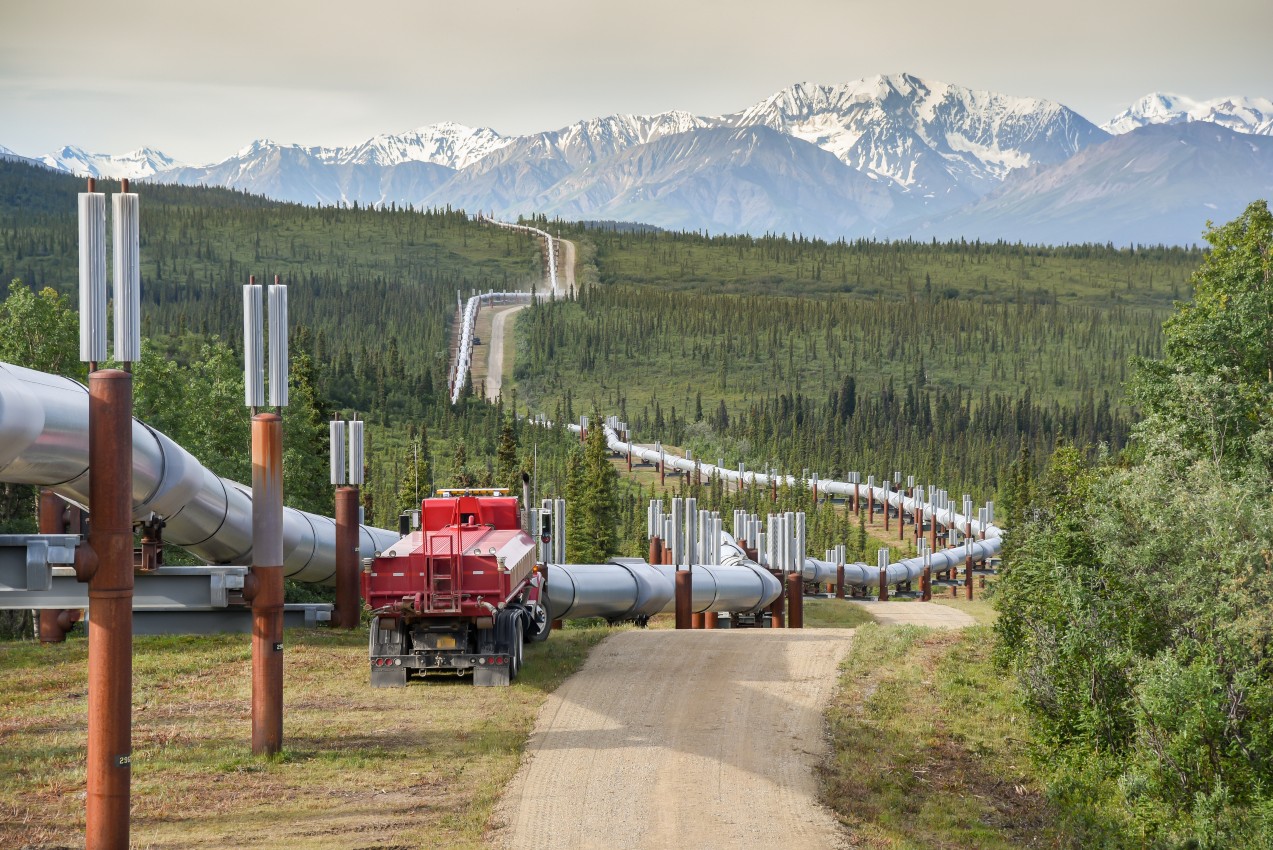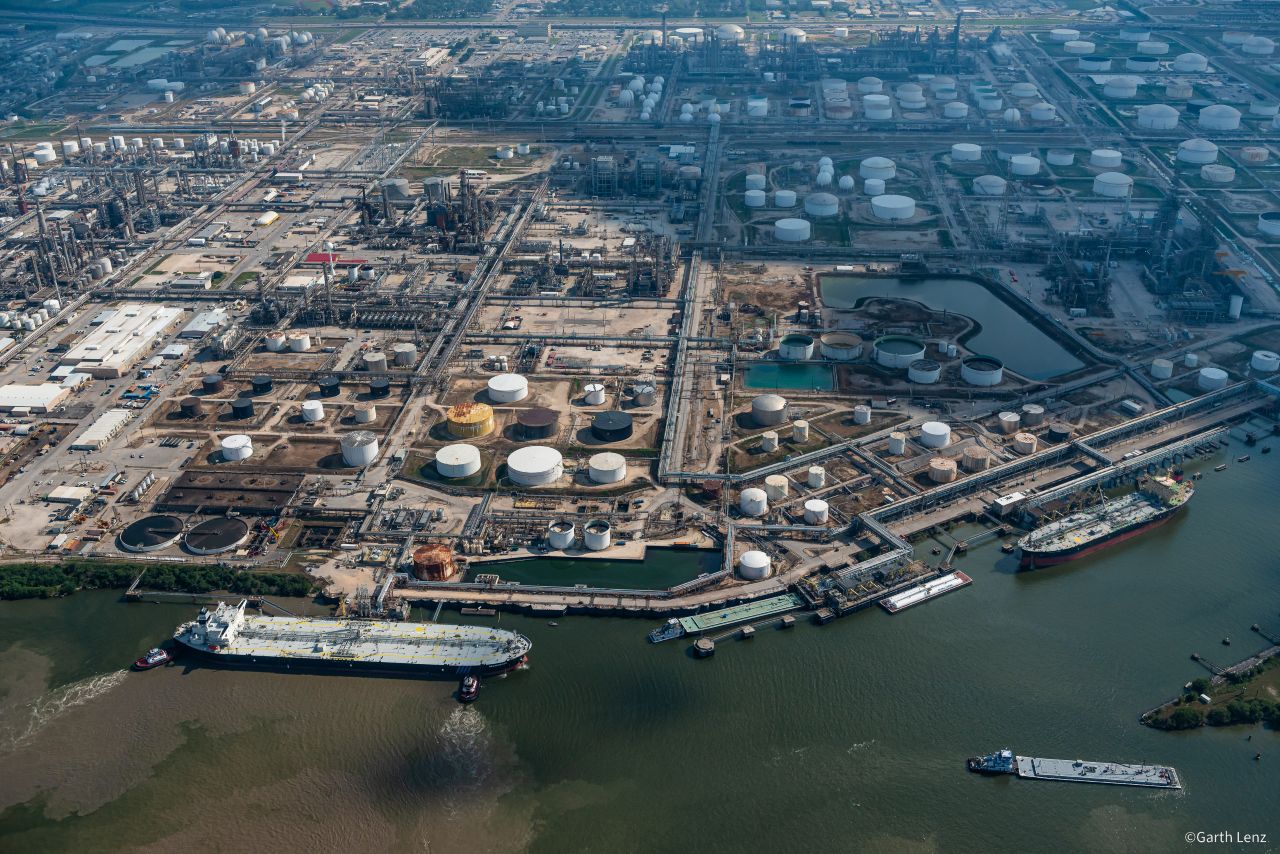Trump’s pick for Interior Secretary likely to increase drilling on federal public land

To run the U.S. Department of the Interior and supervise drilling on federal land, President-elect Donald Trump last week selected Doug Burgum, a billionaire former software executive and real estate developer who has served as North Dakota’s governor since 2016.
As governor, Burgum oversaw one of the most prolific oil and gas states in the U.S., ranking third after Texas and New Mexico in oil production. North Dakota is home to the Bakken formation, one of the richest oil production areas in the U.S.
Burgum has a documented friendship with oil magnate and fracking pioneer Harold Hamm, a Trump advisor and chairman of Continental Resources, a top North Dakota oil and gas leaseholder.
Burgum’s family leases 200 acres of farmland in the state to Continental for oil and gas production, providing Burgum up to $50,000 in royalties, according to a 2023 financial disclosure form. In 2023, Continental Resources gave $250,000 to a pro-Burgum political action committee, Best of America PAC.
Bergum entered the crowded 2024 Republican presential primary but left the race in December 2023. Since then, he has become a key Trump ally, helping to facilitate Trump’s connections with oil and gas executives.
If confirmed by the Senate, Burgum would oversee the federal agency most in charge of oil and gas leasing and development in federal coastal waters and on federal lands.
Trump also picked Burgum to chair his newly formed National Energy Council, which Trump said will “oversee the path to U.S. ENERGY DOMINANCE by cutting red tape, enhancing private sector investments across all sectors of the Economy, and by focusing on INNOVATION over longstanding, but totally unnecessary, regulation.”
How a Trump Administration would boost oil and gas production is unclear, given that the U.S. during President Joe Biden’s term broke records for oil and natural gas production. Energy experts have said that even more drilling and production are unlikely to lower energy costs for consumers, in part because of international competition. Countries like Saudi Arabia and Russia, for example, can reduce their output and keep oil and gas more expensive and profitable.
Despite this, Trump’s agenda calls for a massive expansion of oil and gas production. The Heritage Foundation’s Project 2025, often seen as a playbook for the next Trump Administration, calls for a rollback of Biden’s efforts to reduce leasing on federal lands, as well as to “conduct offshore oil and natural gas leases to the maximum extent possible.”
During the second Republican primary debate in September 2023,, Burgum attacked the Biden Administration for its climate policies – suggesting that he would echo Trump’s position that global warming is not a serious issue that warrants U.S action.
“It’s not about climate change that we need to be worried about, it’s the Biden climate policies that are the existential threat to America’s future,” Burgum said.
In a Nov. 15 statement after his nomination, Burgum said that “focusing on innovation over regulation to solve the nation’s challenges will allow us to smartly expand American energy and make our world cleaner and safer by selling energy to our friends and allies versus them having to buy it from our adversaries.”
National environmental groups have strongly criticized Burgum’s nomination. In a Nov. 15 statement, Earthjustice president Abigail Dillen said that “by picking Burgum, president-elect Trump is taking the first step toward unleashing a wave of oil and gas drilling on our public lands.”
Ben Jealous, executive director of the Sierra Club, said in a Nov. 15 statement that Burgum helped arrange a meeting last April with oil and gas executives in which Trump promised to overturn environmental rules in exchange for $1 billion in campaign contributions.
“Doug Burgum’s ties to the fossil fuel industry run deep and, if confirmed to this position, he will surely continue Donald Trump’s efforts to sell out our public lands to his polluter pals,” Jealous said.
According to a September report by Resources for the Future, perpetually expanding oil and gas leasing on federal lands at the rate the Trump Administration leased land from 2017 to 2019 would increase global greenhouse gas emissions by 43 million tons per year, roughly equivalent to the emissions from over 10 million gasoline-powered cars and trucks or more than 11 coal-fired power plants per year.
As governor, Burgum sued the Biden Administration over multiple environmental policies, including a Bureau of Land Management (BLM) rule published in April mean to reduce natural gas venting and flaring on public lands. A federal judge in North Dakota temporarily blocked the BLM from enforcing that rule in September. Burgum’s office called that decision “a temporary victory for consumers, U.S. energy independence, and national security.”
In 2021, North Dakota also sued the Biden Administration for its pause of new oil and gas leasing on federal lands. Burgum mentioned the suit during the second primary debate, saying the Interior Department was “ignoring the law” and claimed that “we won that [case] in federal court.”
In January 2022, a federal judge in North Dakota ruled against the state, saying that the issue was already being decided in a Louisiana federal court. Both sides are continuing to litigate the case in the North Dakota federal court.
In April 2022, the Biden Administration resumed leasing on federal lands, though it reduced the acreage available compared to previous administrations and increased royalties and fees paid by companies to the federal government. Oil and gas production on federal land went up year-over-year from 2021 through 2023.
Scott Skokos, executive director of North Dakota-based group Dakota Resource Council, said that most oil and gas production in the state is on private land. He described Burgum’s actions on oil and gas as “not out of line with your typical governor overseeing oil and gas” and a bit more nuanced than Burgum’s language in his public statements.
Over the time Doug Burgum was in office, the amount of gas flared by industry in North Dakota declined, Skokos said, possibly in part because of better self-regulation by the industry.
Skokos said his group has seen the state’s enforcement of environmental regulations slightly improve under Burgum compared with former Republican Gov. Jack Dalrymple, when “we were fighting all the time.” “[Burgum] is a little bit easier to work with,” Skokos said.
But does he think Burgum will follow through on the Project 2025 agenda of expanding leases?
“I hope he doesn’t, but the rhetoric sounds like he’s going to,” Skokos said.
Lead photo: Former President Donald Trump, the Republican presidential nominee, talks with North Dakota Gov. Doug Burgum in the Fiserv Forum on the third day of Republican National Convention in Milwaukee, Wis., on Wednesday, July 17, 2024. (Tom Williams/CQ Roll Call via AP Images)















